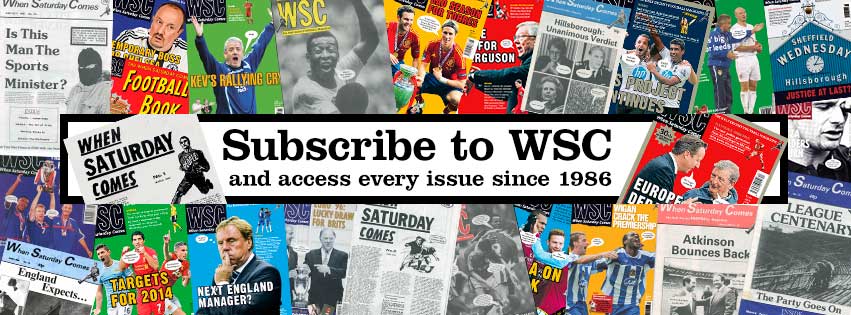When it comes to recruitment, it’s not just racism where sports journalism has a problem – it operates a system which freezes out the very voices from which it needs to hear more
14 January ~ Raheem Sterling has shown remarkable composure and strength of character in attempting to highlight the root cause of the intolerance directed at him. But the racial abuse he has suffered is not the story here. What should be highlighted is why a corner of society has felt emboldened to make their hate overt again. And that’s why pointing a finger at the press, rather than the individual who sought to verbally attack him, was a perfect thing to do.
In the UK, journalism – and the national sports desks especially – lack meaningful diversity. In most offices and boardrooms, the higher up a company or industry you climb, the less likely you are to see a minority. But aspiring writers of colour don’t even get the opportunity to feel overlooked within a sports journalism environment, because the door is closed to us before we even get that far. It’s been over two years since I made an audio documentary focusing on this subject, with contributions from, among others, freelancer Natasha Henry, Jonathan Liew (Independent) and Carl Anka (Players’ Tribune). During that time nothing has changed because those in a position to bring about change have not recognised that anything is actually wrong.
Writers from diverse backgrounds are far more likely to come from poorer households, with greater student debt and fewer existing connections within the industry. Working for free isn’t an option for those of us not from families who can support us long enough to build up our careers; you cannot benefit from nepotism if you’re the first with your name to attempt to enter the profession. The standard career path – knowing someone to let you in the door, working for free while making the tea and coffee, learning from experienced writers before being given your own staff role and working your way up – is by its very nature exclusive, and divides the industry from the lowest rung to the very highest.
So where do writers of colour go instead? If not to another career entirely, we work as freelancers. This is a far less ringfenced environment – you’re rewarded for talent, personality, creativity, work ethic and ingenuity and (eventually) paid for it. While you exist outside of the mainstream, you can grow a profile through social media, see your work published on merit in places you otherwise wouldn’t and reach an audience otherwise unavailable to you, without being made to feel like a token hire or filling a quota. But in the long term, a career working for oneself rather than within the sports media establishment isolates you. When it comes time to apply for staff jobs, you’re overqualified for the junior position you couldn’t get before, and your talent counts for less than the familiarity and trust an internal candidate has been able to generate, even if the work they produce isn’t of the same level.
Diverse coverage of football exists in parallel to the whiter, middle-aged and male-dominated mainstream. Writers of colour are often told that we’re going to have to work twice as hard to get half as far, and that’s even harder to swallow when the positions you’re being overlooked for are filled by those with a completely unoriginal voice and world view. The lack of a minority presence within newsrooms is how multiple racially motivated stories about a player such as Raheem Sterling having the audacity to be a successful young black man manage to be published, because the right people simply aren’t there to challenge it.
Newsrooms don’t just need a diversity quota, but a complete culture shift, because until they do they will remain inhospitable environments for exactly the type of people they desperately require more of. Until then, press boxes are going to continue looking like the crowd at a Mumford & Sons gig. Nothing is gained by football writers and editors tweeting their distaste at individual incidents if they’re not going to also develop the way they recruit to directly challenge discrimination. From where we stand right now, there are always going to be more doors open to a Kevin than a Kwame, Karmveer or, god forbid, Katherine – that’s just how it works, because that’s how it’s always worked. Raj Bains
This article first appeared in WSC 383, February 2019. Subscribers get free access to the complete WSC digital archive – you can find out more here
